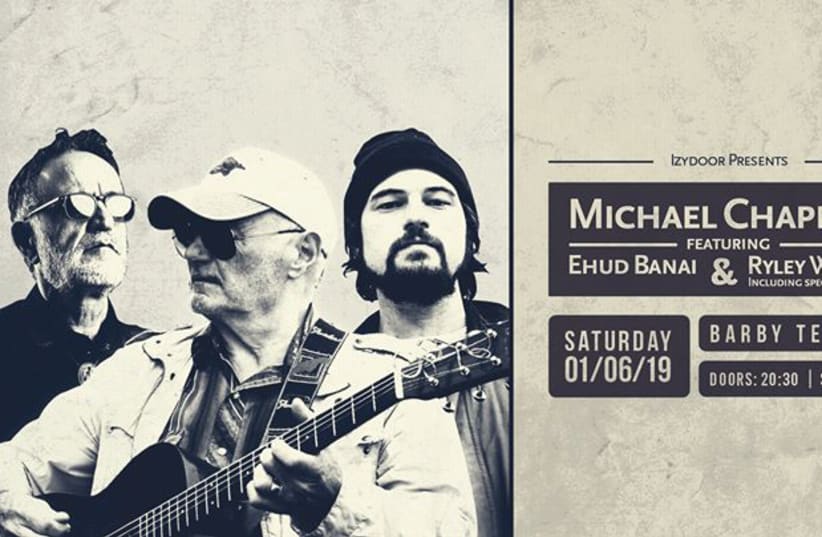Barby Club
Tel Aviv, June 1
The Barby is known for sweaty rock shows, but tonight chairs are laid out in rows. More recital, less moshpit. A red backdrop adorns the understated stage, three microphones and two guitar amplifiers awaiting the noise-makers.
The tall, gentle American guitarist Ryley Walker appears on stage. “What’s cooking, how you doing?” We’re doing fine, and pleased he is too, following the cancellation of his April tour due to health issues. Like many of his peers, he is a quiet self-deprecating type who uses the power of guitar and voice to express himself.
Walker picks up his Fender Telecaster, alternating between tuning and telling us how happy he is to be here, talking about hummus, the beautiful people, weather and town and how he feels at home.
Satisfied, he finger-picks his way into a massive folky psychedelic soundscape – a mesmerizing, reverberating harmonic sea invoking his many influences. This is how music sounded before the “loudness war,” dynamics taking us on a complex, wild ride.
Walker understands that the material is intense, not twee. He explains that one song was “spicy psychedelia to fry your brain, but don’t worry, next is an easy-peasy folky song”.
Before his last song, he confides that he’s had a “weird few months,” and can’t believe he gets paid to do this. Yet, one suspects that this is exactly what he does best.
Walker returns after strong applause, introducing the equally quiet and amiable Michael Chapman, the British virtuoso who’s been influencing under the radar for half a century. He explains it’s a “pleasure to play with two friends,” launching into business, producing a rich, woody tone from his folk-size Martin acoustic guitar.
Chapman segues into the next song and starts to sing. In contrast to his effortless, hypnotic playing, it’s difficult to make out some lyrics due to his folk-mumble vocal approach and Barby PA limitations. It doesn’t matter. Like Dylan, he sings for himself.
At first glance he could be Walker’s more conservative father. However, dark cynicism underpins the material, and the connection between the young American and the grizzled Englishman becomes clear.
Local legend Ehud Banai joins Chapman on stage, dwarfed by his semi-acoustic guitar, on which he adds cello-like swells to Chapman’s foundation. They segue into a Middle Eastern progression, Banai improvising vocals until a harmonica break provides relief. The search for a common groove is more tense than smooth.
The two are mutual admirers, having collaborated on their EB=MC2 album. Chapman’s instrumental “Rosh Pina” is inspired by where Banai originally heard Chapman’s music in the 1970s.
Walker returns at Chapman’s other flank, Chapman and Banai sharing vocals on “Angel” from EB=MC2. Despite the lack of rhythm section, a big sound fills the air. Banai’s playing allows little space, Walker handles the situation with graceful maturity, adding ambience and depth.
Refreshingly, it was about the music, a word often followed by the word “business”, but not tonight. Emotive expression by and for honest people, turning a blind eye to generations and cultures, we left the venue feeling human.
